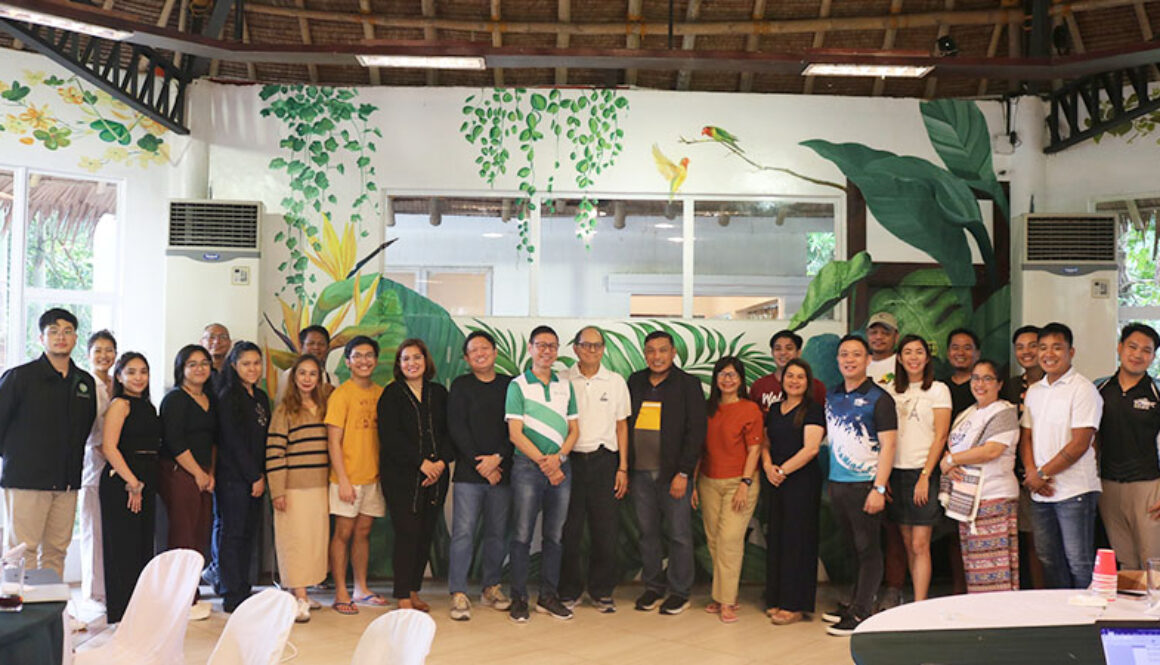Forging Partnerships, Empowering Communities: ISUFST and CPD Region VI Seal MOU
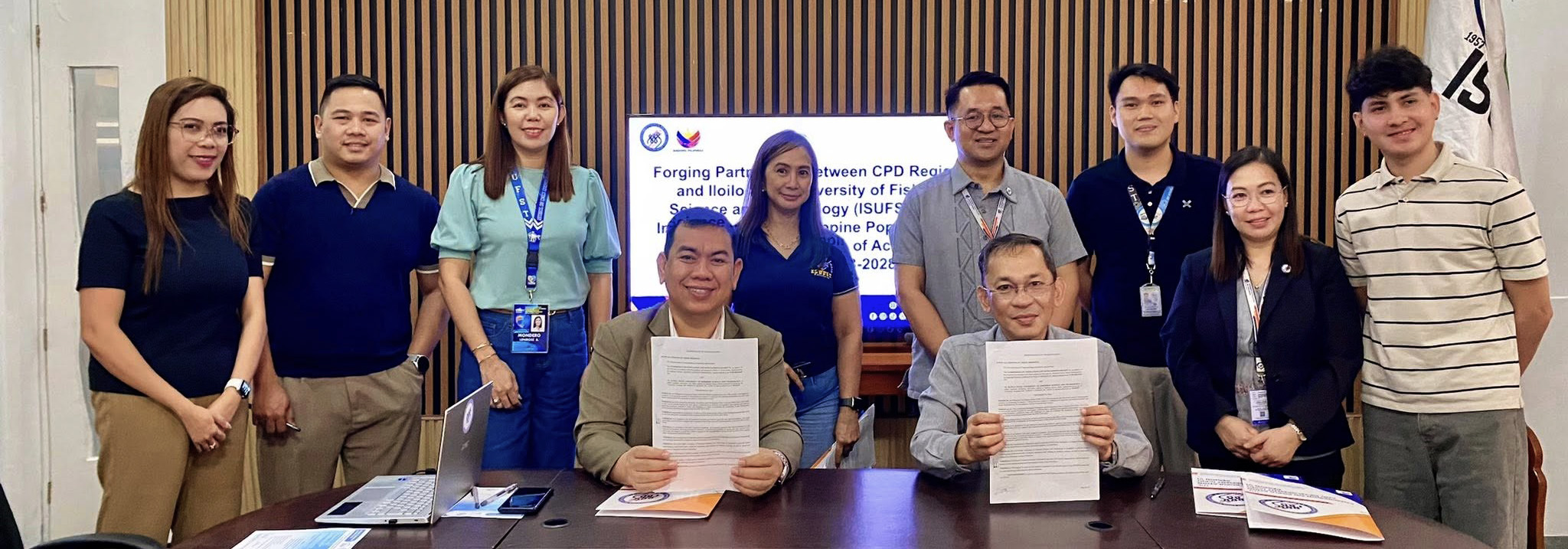

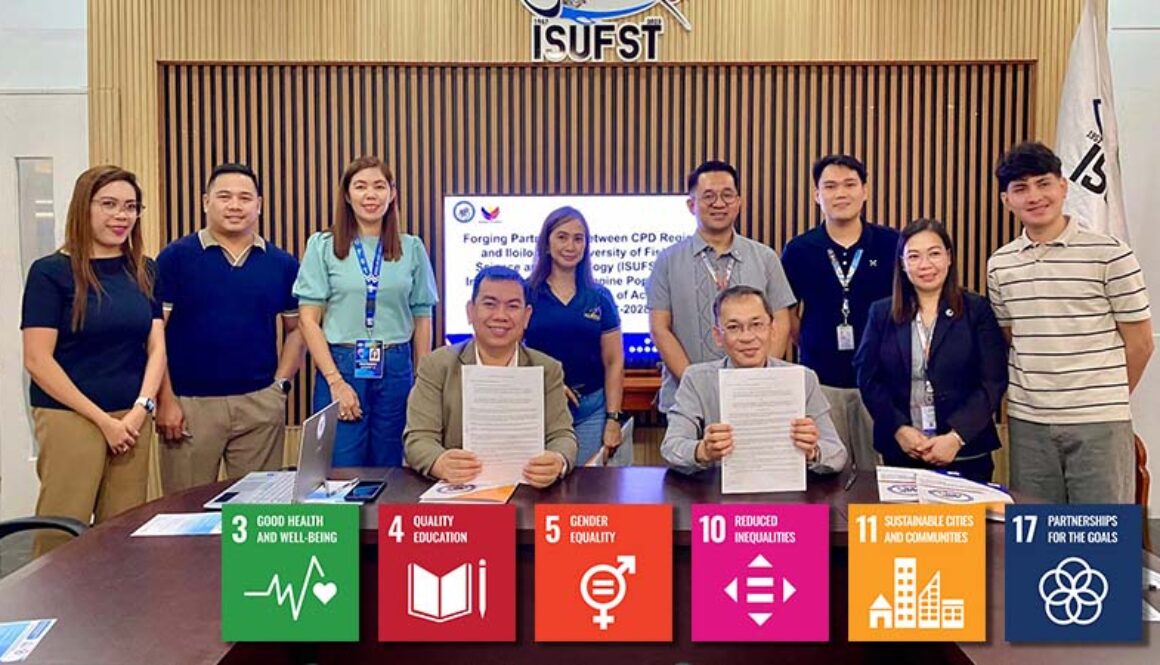




With bold aspirations and grounded hearts, the Iloilo State University of Fisheries Science and Technology (ISUFST) opened a two-day Strategic Planning Workshop on Internationalization on July 21, 2025, at the ICT TechnoHub in ISUFST Main Campus-Poblacion Site, Barotac Nuevo, Iloilo. The initiative aims to craft a five-year roadmap to guide the university’s global engagements—while staying true to its mission to serve the people of Iloilo, especially those at the margins.
Bringing together deans, program heads, faculty, internationalization staff, directors, and university administrators, the workshop is led by Dr. Gaudencio C. Petalcorin Jr., Professor VI and Global Reputation Focal Person of Mindanao State University–Iligan Institute of Technology (MSU-IIT). A seasoned academic leader and CHED Internationalization Committee member, Petalcorin brings years of experience in integrating global standards into local institutions.
“We already have what it takes to go global,” Petalcorin said. “But for the plan to work—not just on paper but in people’s lives—our hearts must be in it. Good ideas need effective packaging to make an impact.”

The first day featured aspiration-setting and hands-on workshops per academic program. Each team identified its strategic goals, action points, and success indicators for the next five years. The following morning, Petalcorin and special guest Prof. Eddie Nuque from De La Salle University presented the outputs.
Nuque emphasized the importance of staying mission-focused amid the university’s expanding international reach. “Yes, we must engage the world. But we should never forget that our core mission is to serve the people of Iloilo—especially the marginalized communities who rely on education for opportunity,” he said. “Internationalization should be a tool to deepen—not distract from—our local impact.”
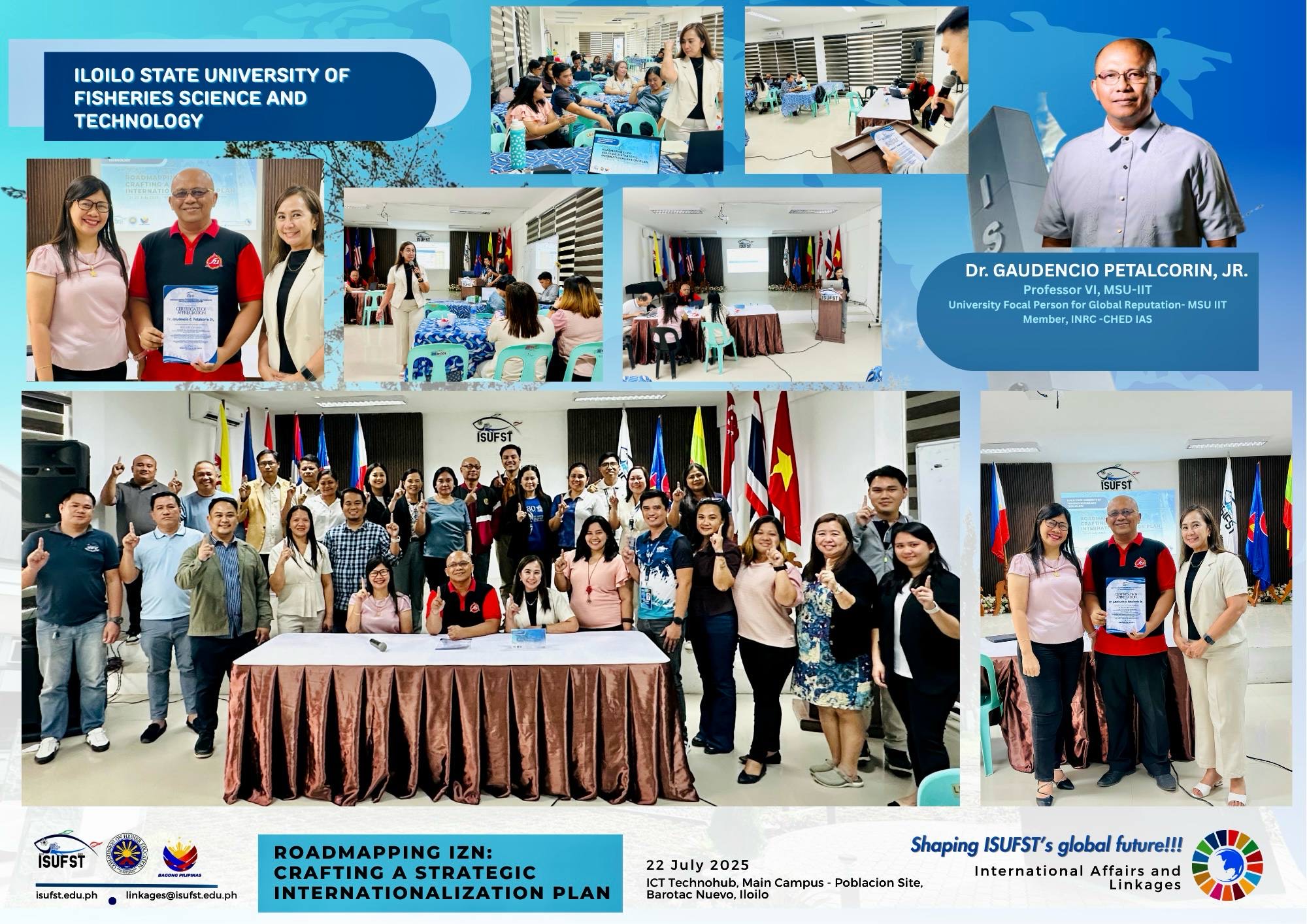



The Iloilo State University of Fisheries Science and Technology (ISUFST) successfully concluded its three-day training and reorientation program titled “GRIT for Service 2025: A Training-Retreat Toward an Ethical, Resilient, and People-Centered Work Culture” held July 16-18, 2025. at Almadria Highland Resort in Talisay City, Negros Occidental. The retreat gathered 237 non-teaching staff, directors, faculty with administrative functions, and top administrators from ISUFST’s five campuses for a shared moment of pause—to reflect, realign, and renew their commitment to public service.
Organized by the Human Resource Management Office with the GAD Office, the training-retreat became more than just a professional reset. At the values-laden integration workshop, ISUFST faculty and staff explored how the university’s vision, mission, mandate, and guiding principles could be lived out through daily care and service. The sessions were framed around SDG 4 (Quality Education), SDG 5 (Gender Equality), SDG 8 (Decent Work), and SDG 16 (Strong Institutions), helping participants anchor their actions in the GRIT values—Growth, Resilience, Integrity, and Teamwork—that define the university.

“This retreat reflects what ISUFST truly stands for,” said University President Dr. Nordy Siason, Jr. “We don’t just aim to deliver quality service—we build a community that serves with humility, passion, integrity, and purpose. And our non-teaching staff are at the heart of that mission.”

Day 1 began with an inspiring talk from Fr. Joel Rojo-Eslabra, chaplain of WVSU Medical Center, who invited participants to reconnect with their “why” through ikigai, the Japanese concept of purpose. “Service begins when we rediscover our reason for showing up each day,” he said. His talk continued after lunch, blending stories, clips, and quiet moments that invited participants to look inward. Fr. Eslabra reminded everyone that true service begins not with titles, but with the simple decision to care, to listen, and to lead with heart.

By mid-afternoon, energy and laughter filled the room as Mr. Al Ian Barcelona, CEO-President of AIB Training and Consultancy Corporation, challenged the group to reframe their roles with joy and passion during his WAVE session: Works Acceleration and Value Empowerment. Later that evening, new staff members introduced themselves to the wider community through lively talent presentations—an icebreaker that quickly turned into a celebration of shared joy, creativity, and campus pride.
Mr. Barcelona continued his session in Day 2, weaving in themes of personal passion, institutional alignment, and values-driven performance.

Also on that same day, July 17, Dr. Kharlie Joehn Hautea, the university physician, emphasized the importance of health, wellness, and safety in the workplace, reminding staff that good service begins with well-being.

Later in the day, ISUFST Legal Officer Atty. Joey Mondero revisited Republic Act No. 6713, the Code of Conduct and Ethical Standards for Public Officials and Employees. His session, and the engaging Q&A thereafter, reinforced that integrity, transparency, and accountability are not just legal mandates—they are daily practices that sustain public trust.
The second night brought moments of joy and unity during the Search for Mr. and Miss Non-Teaching Staff 2025. Mary Floren Arguez and Eli Gene Tisuela, both from the Tiwi Campus, were crowned titleholders. The event, though lighthearted, echoed the retreat’s spirit of confidence, inclusivity, and campus pride. Participants described it as “a celebration of the quiet strength behind every desk and department.”

The final day, July 18, featured CHMSU’s Director of Student Affairs and Services, Dr. Ma. Victoria Violanda, who ended the training retreat on a powerful note about working with purpose. She talked about the courage it takes to stay committed, the strength in collaboration, and the wisdom in being a lifelong learner.
Meanwhile, program lead Supervising Administrative Officer (SAO) Alma P. Betito also noted that: “For us, this retreat is a heart-check, it is a reminder of why we do what we do.” She added: “Our non-teaching staff are vital to the university’s heartbeat. Empowering them means enriching our entire system of service.”
Dr. Lenirose Mondero, GAD Director, affirmed the deeper purpose behind the activity: “When we build an inclusive, reflective workplace, we don’t just boost morale—we strengthen the very foundation of the service we give to students and communities. It’s about making each person feel seen, valued, and driven by purpose.”
With its blend of knowledge sessions, honest reflections, and shared celebrations, GRIT for Service 2025 reaffirms ISUFST’s mission to nurture kind, ethical, and resilient public servants. It also supports the university’s goal to align human resource development with institutional performance and to recognize excellence through the PRAISE incentive system.
As the country’s first and only state university dedicated to fisheries science and technology, ISUFST continues to lead with heart—cultivating a workplace where compassion, purpose, and public service grow hand in hand. (Herman Lagon / Ricky Ramos / Edeline Joy Brito / PAMMCO)

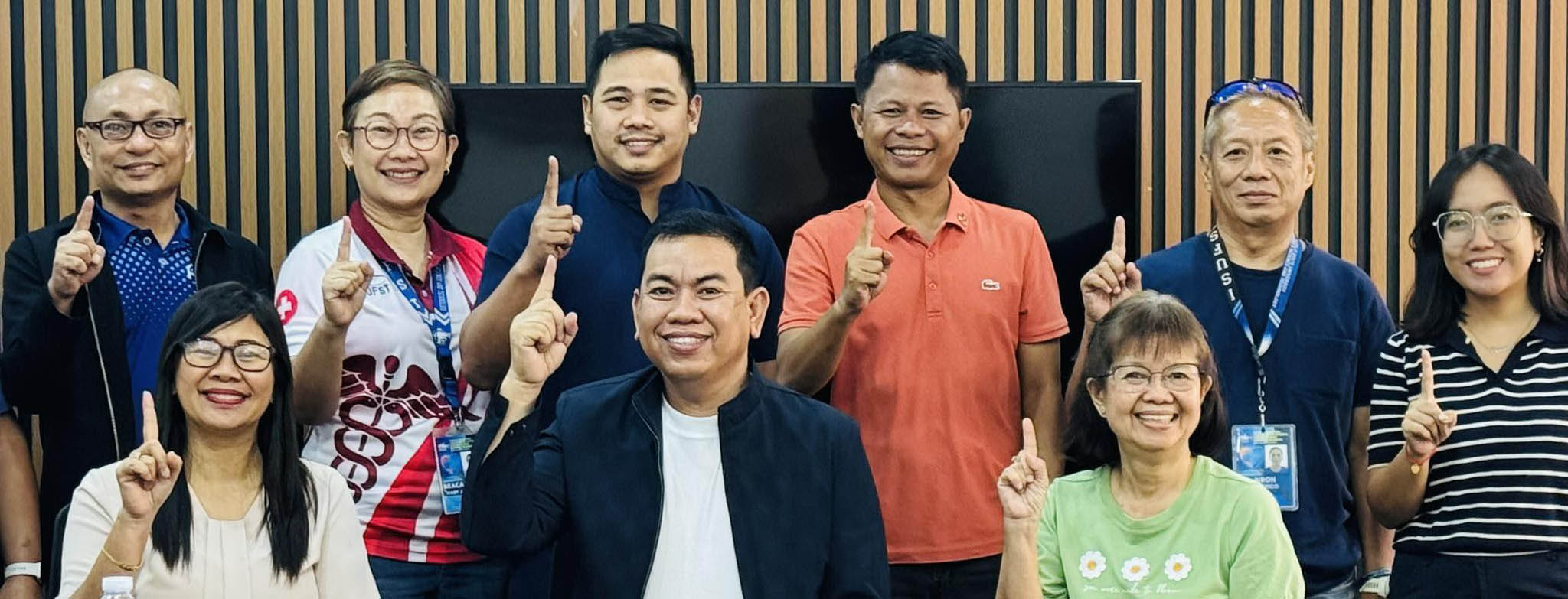

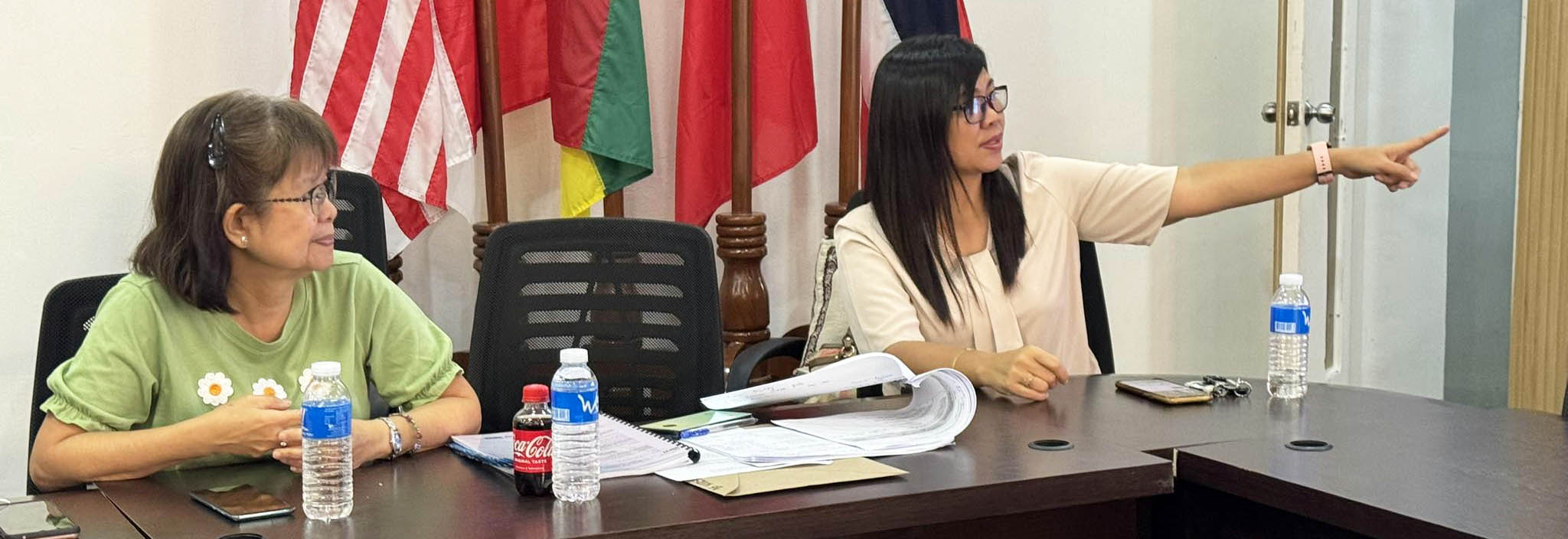

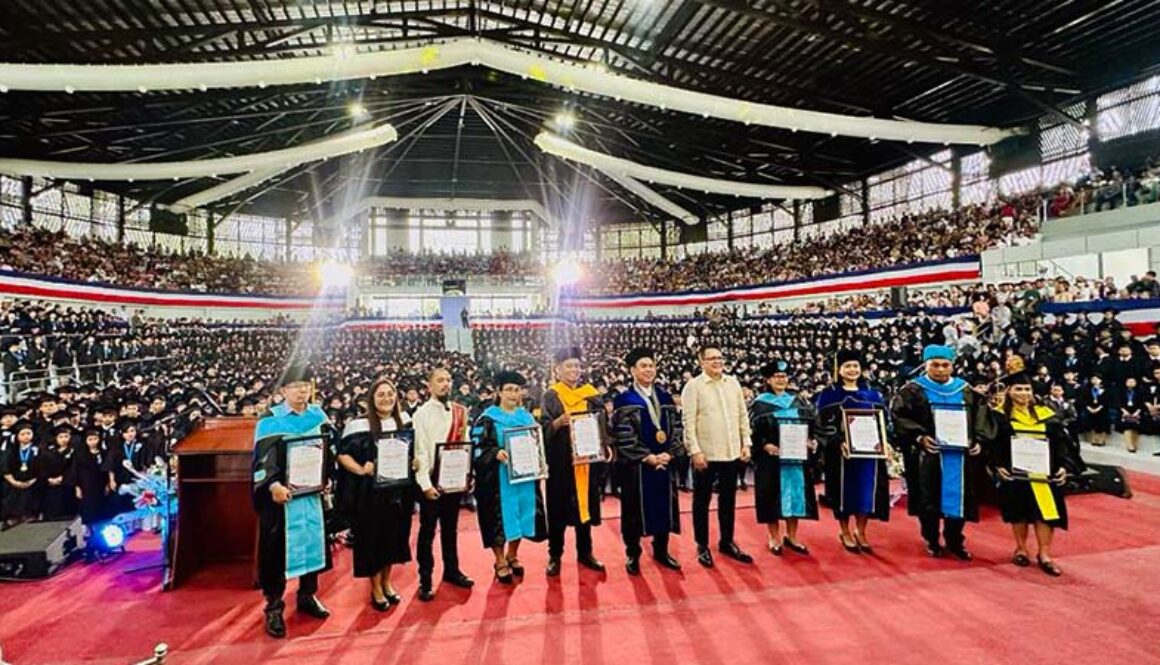

In a historic milestone, the Iloilo State University of Fisheries Science and Technology (ISUFST) conferred degrees to 1,825 graduates — including 74 magna cum laude and 324 cum laude honorees–during its university-wide, in-person with a live broadcast commencement exercises held Thursday, June 5, 2025, at the Tamasak Arena, Barotac Nuevo, Iloilo. For the first time in ISUFST 68-year history, graduates received their actual diplomas on stage during the ceremony.

ISUFST President Dr. Nordy C. Siason Jr. led the conferment of degrees, grounding the moment in both pride and purpose. Reflecting on the occasion, Dr. Siason said, “This isn’t just a graduation—it’s a celebration of grit and growth. Behind every diploma is a story of sacrifice, sleepless nights, and hope. At ISUFST, we don’t just hand out degrees—we help shape lives that will serve, innovate, and make a real difference in our communities.”

While Department of Education Secretary Juan Edgardo “Sonny” Angara, the designated commencement speaker, was unable to attend due to official commitments with President Ferdinand Marcos Jr., his message was delivered by DepEd Undersecretary Peter Irving Corvera. Angara reaffirmed his strong ties with ISUFST, recalling his efforts in securing ₱10 million in funding for the College of Education Annex in 2018 and his co-authorship of RA 10604, the law that converted the then Iloilo State College of Fisheries (ISCOF) into a state university, ISUFST. He credited his late father, Sen. Edgardo Angara, as co-author of the Senate counterpart bill.
“Today, I want to underscore the importance of synergy between our basic and tertiary education,” Angara emphasized in his written message. “Together, DepEd and ISUFST share the vision of producing globally competitive, locally grounded graduates.”
He also praised ISUFST’s contributions to academic and community development. “ISUFST stands as a shining example of innovation and excellence, especially in marine sciences, community development, and sustainable technology,” Angara wrote. “As you sail forth into deeper waters, carry with you the pride of your roots.”
“Kamo ang buhi nga pamatuod nga wala sing limitasyon ang inobasyon kung ang tuyo amo ang pagpaayo sang kalidad sang edukasyon diri sa aton nga pungsod [You are the living proof that innovation knows no limits when the goal is to improve the quality of education in our country.],” Angara added, emphasizing the importance of innovation in education.

This year’s graduates came from five campuses and diverse academic programs, reflecting the university’s wide-ranging educational portfolio:
• Main Campus–Tiwi Site (295 graduates): 91 BS Fisheries, 16 BS Marine Biology, 27 BPE, 18 BSED English, 21 BSED Filipino, 4 BSED Math, 9 BSED Science, 4 BSED Social Studies, 27 BTLEd, 72 BSTM, 6 BLGA
• Main Campus–Poblacion Site (470): 99 BEED, 40 BSED English, 96 BS Information Technology, 161 BS Hospitality Management, 44 BIT Automotive, 16 BIT Electricity, 14 BIT Electronics
• Dingle Campus (409): 58 BS Agriculture Animal Science, 114 BS Agriculture Crop Science, 20 BEEd, 11 BSED Math, 11 BSED English, 31 BS Filipino, 6 BS Science, 53 BS Information Technology, 105 BS Hospitality Management
• Dumangas Campus (262): 52 BEED, 58 BSED English, 9 BSED Math, 16 BSED Science, 58 BS Hospitality Management, 69 BS Information Technology
• San Enrique Campus (389): 29 BEED, 27 BSED English, 12 BSED Math, 35 BSED Filipino, 50 BS Agriculture Animal Science, 67 BS Agriculture Crop Science, 73 BS Hospitality Management, 36 BS Office Administration, 60 BS Information Technology
Adding to the seven-hour occasion held in a jam-packed stadium, the Civil Service Commission awarded certificates of eligibility to the 398 graduates who earned Latin honors, recognizing their outstanding academic excellence and qualifying them for positions in government service without having to take the Career Service Exam. These honor graduates were also formally inducted into the ISUFST Alumni Association, signifying the beginning of their lifelong connection to the university and its growing network of professionals and changemakers.

Vice President for Academic Affairs Dr. Joan Belga commended the graduates’ academic journey: “These graduates have undergone a well-rounded and outcomes-based education. They are prepared not just for jobs, but for meaningful impact.”
Vice President for Administration and Finance Dr. Johnny Dolor noted the institution’s preparedness for global workforce trends: “Our investment in infrastructure, from automotive technology upgrades to research hubs, mirrors our commitment to excellence and readiness for global workforce demands.”
The ceremony also recognized the university’s recent institutional achievements, including:
• Outstanding Board Performance Award for an 80% passing rate in the October 2024 Licensure Examination for Fisheries Professionals
• 100% Certificate of Program Compliance (COPC) for both undergraduate and graduate programs
• Awards for Excellence in Community Extension, Internationalization Initiatives, Peace Education, Indigenous Peoples Education, and Student Affairs and Services
• Recognition for Support to CHEDRO VI and as Model Implementer of STUFAP/CSP (ISUFST Dingle Campus)
The graduation program concluded a week-long schedule of recognition rites and baccalaureate services conducted from June 2 to June 4 across ISUFST’s campuses in Dingle, Dumangas, San Enrique, and the Main Campus (Tiwi and Poblacion Sites). These ceremonies were inclusive of both Catholic and non-Catholic faiths and were held in churches, function halls, and cultural centers.
Founded in 1957, ISUFST is the country’s first and only fisheries university. It is designated as a Center of Development in Fisheries and holds ISO 9001:2015 certification, with consistent accreditation from CHED and AACCUP. Today, ISUFST offers 27 undergraduate and 16 graduate programs, serving over 8,500 students with a faculty composed of over 280 educators, half of whom hold doctorate degrees. (Photos by Ricky Ramos and MIS/Text by Herman Lagon/PAMMCO)
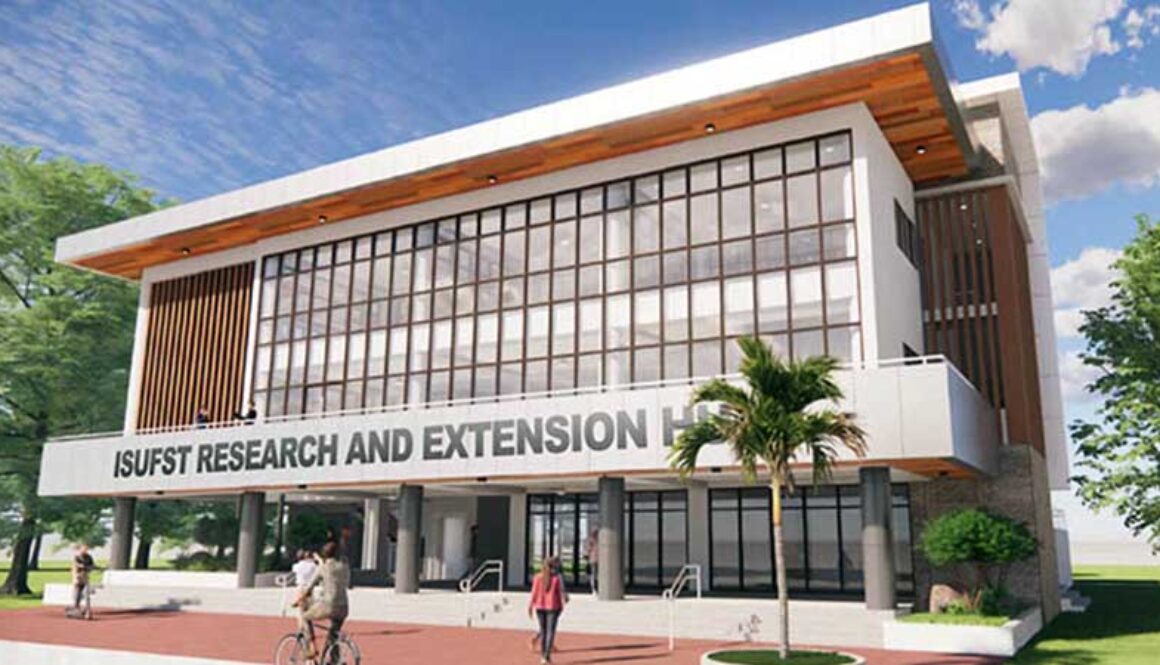










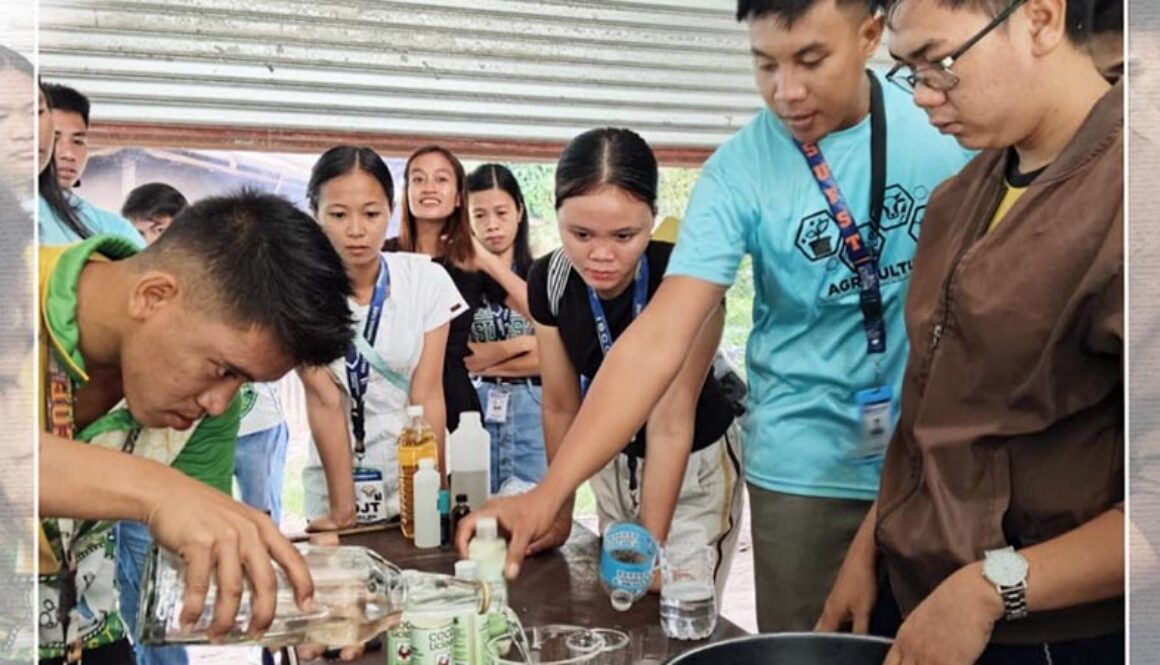

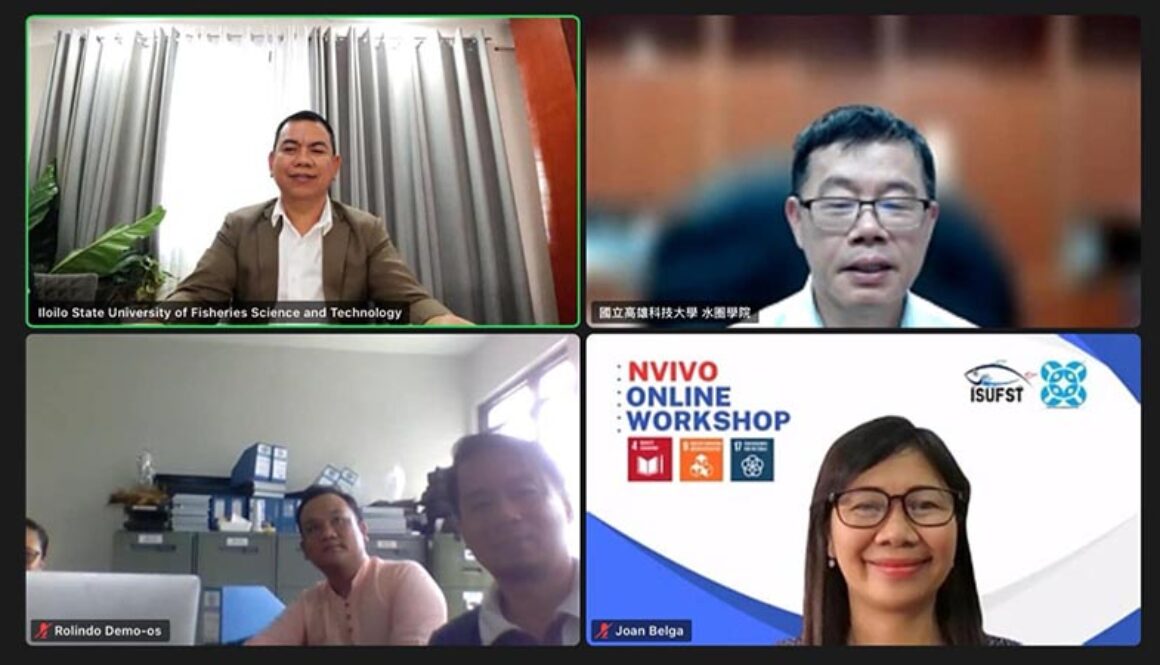
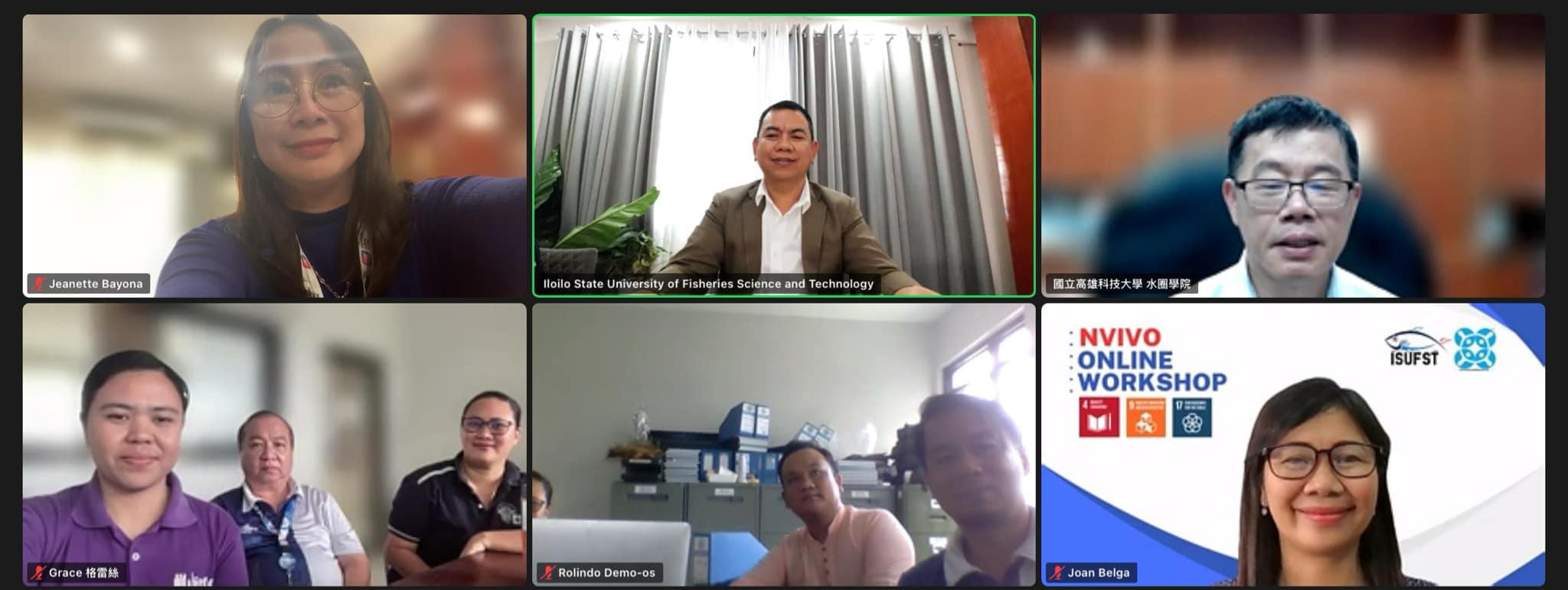
Strengthening global ties for academic excellence and collaboration! . On February 12, 2025, at 11 AM PST, Iloilo State University of Fisheries Science and Technology (ISUFST) and National Kaoshiung University of Science and Technology (NKUST) virtually signed a Memorandum of Understanding to foster academic cooperation. Present at this historic event were Dr. Nordy Siason Jr., CESO VI, University President of ISUFST, Prof. Cheng-Di Ding, Dean of the College of Hydrosphere Science of NKUST, Dr. Joan Belga, Vice President for Academic Affairs (VPAA), Dr. Jeanette Bayona, Director of International Affairs and Linkages, and Dr. Rolindo Demo-os, Dean of the College of Fisheries and Aquatic Sciences, alongside other distinguished faculty members from ISUFST.
This partnership opens doors for greater opportunities in research, education, and global exchange.
#ISUFSTxNKUST #AcademicPartnership #InternationalCollaboration“

